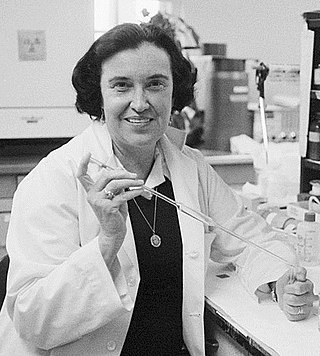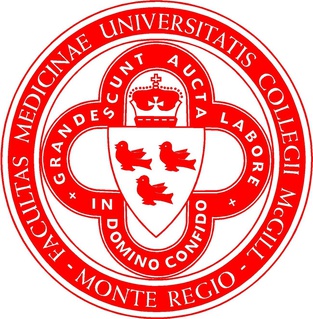
Rosalyn Sussman Yalow was an American medical physicist, and a co-winner of the 1977 Nobel Prize in Physiology or Medicine for development of the radioimmunoassay technique. She was the second woman, and the first American-born woman, to be awarded the Nobel Prize in Physiology or Medicine.

Earl Wilbur Sutherland Jr. was an American pharmacologist and biochemist born in Burlingame, Kansas. Sutherland won a Nobel Prize in Physiology or Medicine in 1971 "for his discoveries concerning the mechanisms of the action of hormones", especially epinephrine, via second messengers, namely cyclic adenosine monophosphate, or cyclic AMP.
Ronald Mark Evans is an American Biologist, Professor and Head of the Salk’s Gene Expression Laboratory, and the March of Dimes Chair in Molecular and Developmental Biology at the Salk Institute for Biological Studies in La Jolla, California and a Howard Hughes Medical Institute Investigator. Dr. Ronald M. Evans is known for his original discoveries of nuclear hormone receptors (NR), a special class of transcriptional factor, and the elucidation of their universal mechanism of action, a process that governs how lipophilic hormones and drugs regulate virtually every developmental and metabolic pathway in animals and humans. Nowadays, NRs are among the most widely investigated group of pharmaceutical targets in the world, already yielding benefits in drug discovery for cancer, muscular dystrophies, osteoporosis, type II diabetes, obesity, and cardiovascular diseases. His current research focuses on the function of nuclear hormone signaling and their function in metabolism and cancer.
Phil Gold is a Canadian physician, scientist, and professor.
Charles Robert Scriver was a Canadian pediatrician and biochemical geneticist. His work focused on inborn errors of metabolism and led in establishing a Canada-wide newborn metabolic screening program.
John Robert Evans was a Canadian cardiologist, academic, businessperson, and civic leader.

James Bertram Collip was a Canadian biochemist who was part of the Toronto group which isolated insulin. He served as the Chair of the Department of Biochemistry at McGill University from 1928–1941 and Dean of Medicine at the University of Western Ontario from 1947–1961, where he was a charter member of The Kappa Alpha Society.
Charles H. Hollenberg was a Canadian physician, educator and researcher.

The Faculty of Medicine and Health Sciences is one of the constituent faculties of McGill University. It was established in 1829 after the Montreal Medical Institution was incorporated into McGill College as the college's first faculty; it was the first medical faculty to be established in Canada. The Faculty awarded McGill's first degree, and Canada's first medical degree to William Leslie Logie in 1833.

Oliver Smithies was a British-American geneticist and physical biochemist. He is known for introducing starch as a medium for gel electrophoresis in 1955, and for the discovery, simultaneously with Mario Capecchi and Martin Evans, of the technique of homologous recombination of transgenic DNA with genomic DNA, a much more reliable method of altering animal genomes than previously used, and the technique behind gene targeting and knockout mice. He received the Nobel Prize in Physiology or Medicine in 2007 for his genetics work.
Arnold Naimark is a Canadian physician, academic, and former President of the University of Manitoba.
Nahum Sonenberg, is an Israeli Canadian microbiologist and biochemist. He is a James McGill professor of biochemistry at McGill University in Montreal, Quebec, Canada. He was an HHMI international research scholar from 1997 to 2011 and is now a senior international research scholar. He is best known for his seminal contributions to our understanding of translation, and notable for the discovery of the mRNA 5' cap-binding protein, eIF4E, the rate-limiting component of the eukaryotic translation apparatus.
Alan Bernstein is Professor Emeritus at the University of Toronto and President Emeritus of CIFAR, where he served as President and CEO from 2012 to 2022. A Distinguished Fellow at the Munk School of Global Affairs and Public Policy, he is also a Fellow and Member of the Standing Committee for Science Planning at the International Science Council (2022-2025). Bernstein is recognized as a leader in health research, science policy, mentorship and organizational leadership.
Allan R. Ronald is a Canadian doctor and microbiologist. He has been instrumental in the investigation into sexually transmitted infections in Africa, particularly in the fields of HIV/AIDS. Ronald is the recipient of multiple awards and honours.

James C. Hogg is a Canadian physician and one of Canada's leading pulmonary pathologists. Hogg has been recognized for his research into Chronic Obstructive Pulmonary Disease. He received the Canada Gairdner Wightman Award in 2013. He became an officer of the Order of Canada in 2005 and was named to the Canadian Medical Hall of Fame in 2010. He also received the Queen Elizabeth II’s Diamond Jubilee Medal.
Peter Tiffany Macklem, OC, FRCP(C), FRSC was a Canadian doctor, medical researcher and hospital administrator.
Ronald G. Worton is a Canadian doctor.
Francis Allan Plummer was a Canadian scientist, academic and HIV/AIDS researcher. He was "a recognized specialist in infectious diseases whose work influenced public health policy in Canada and abroad". He was Distinguished Professor Emeritus of Medicine and Medical Microbiology at the University of Manitoba and Scientific Director General, National Microbiology Laboratory.

Michael O. Thorner is David C. Harrison Professor Emeritus of Internal Medicine at the University of Virginia specializing in endocrinology and metabolism. He was previously the chief of the division of endocrinology and metabolism and the chair of the department of internal medicine.
David Goltzman is an endocrinologist, Professor of Medicine and Physiology, and A.G. Massabki Chair in Medicine at McGill University in Montreal, Quebec, Canada. He is the Director of the Centre for Bone and Periodontal Research and also holds the position of Senior Scientist at the McGill University Health Centre Research Institute in the Metabolic Disorders and Complications Program.






